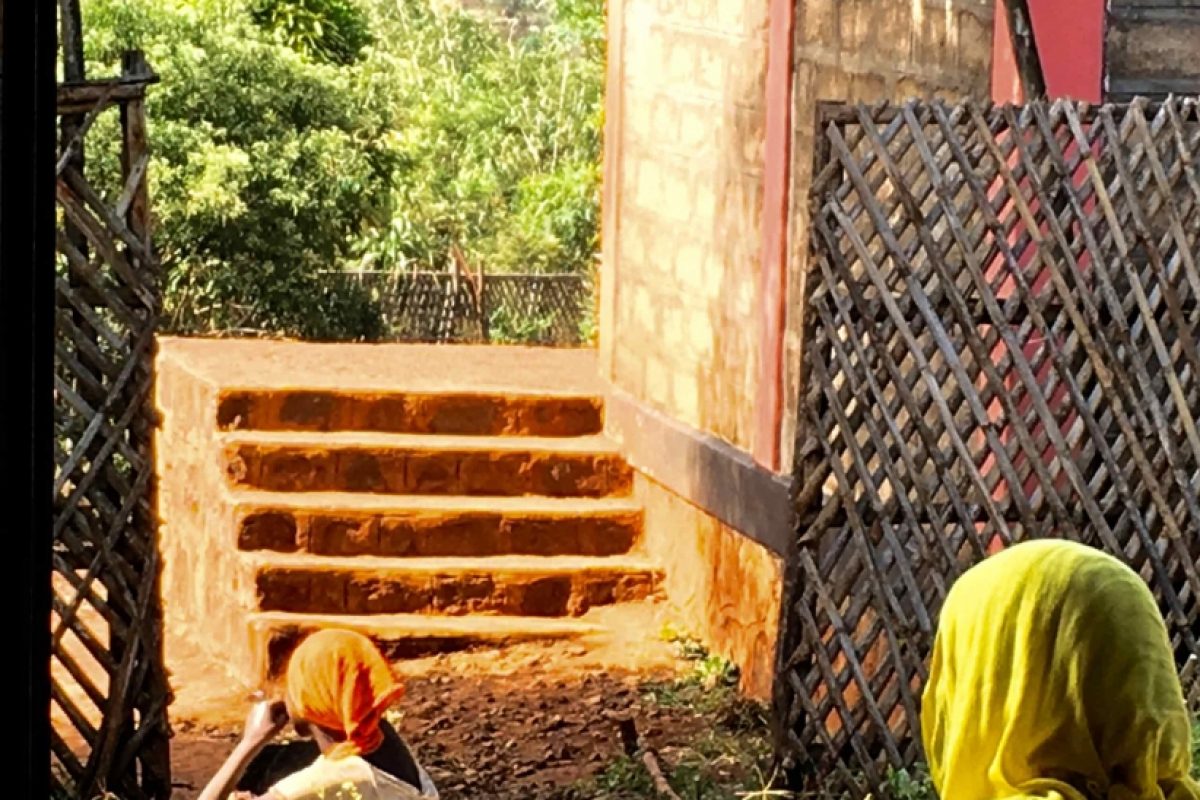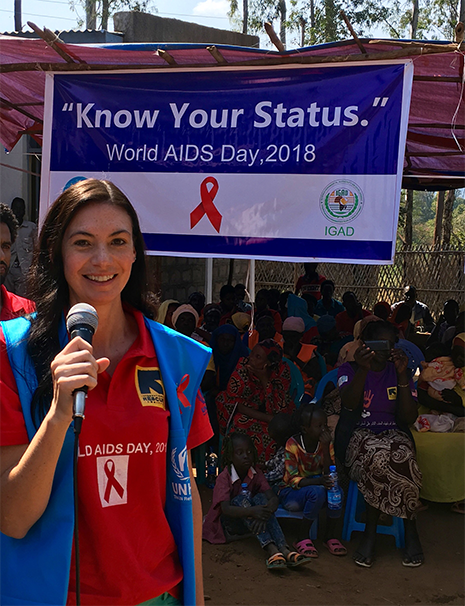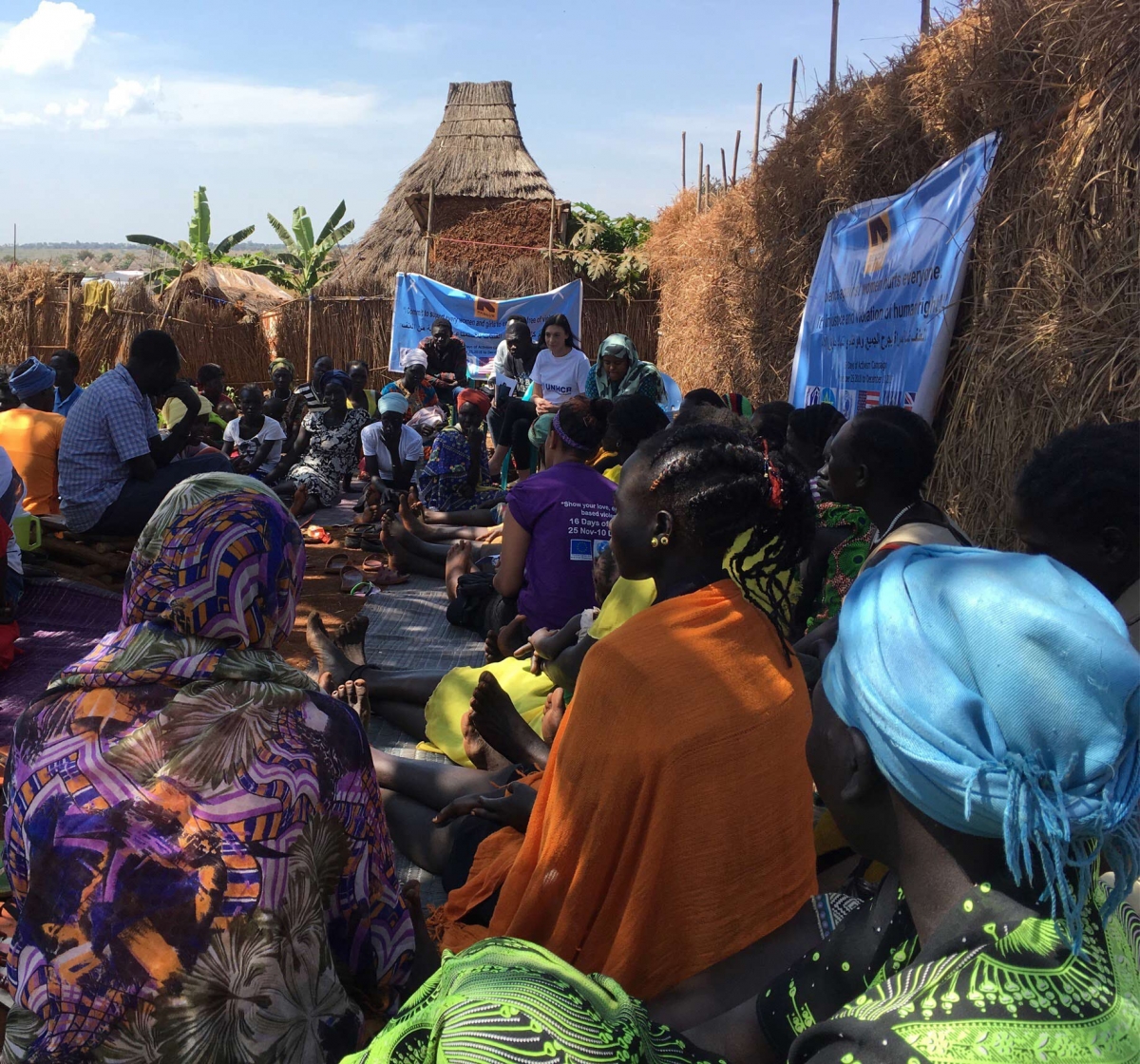Addressing Sexual and Gender-Based Violence in Refugee Communities

How can we prevent and respond to sexual and gender-based violence within refugee communities? Aleta Morn, a humanitarian expert deployed by ICMC, explains how she does it in Ethiopia.
One of Aleta Morn’s major challenges is that real-life experience is all too often not reflected in numbers and statistics. “The biggest thing with sexual and gender-based violence is that it’s so under-reported,” she says.
She is one of the 69 child protection and resettlement experts deployed by the International Catholic Migration Commission (ICMC) to work with the UNHCR in 19 countries.
Morn’s mission in Asosa is to prevent and respond to sexual and gender-based violence among the more than 63,000 refugees, mostly Sudanese and South Sudanese, who live in five camps.
Many incidents remain undetected. Although humanitarian organizations and the host communities in the area are aware of the problem, only 10 to 12 incidents are reported each month.
An important cause of under-reporting, particularly among men and boys, is stigma, Morn notes. Male survivors of sexual violence may be viewed as having a same-sex orientation, which in turn can make them vulnerable to further abuse and trauma.
Regarding violence towards women, most of it takes place domestically and is considered to be a cultural issue. While survivors usually report attacks by strangers to authorities, what happens at home all too often “stays at home.”
Such attitudes underline the need to address sexual and gender-based violence as a community issue. This approach helps both to respond to incidents with protection and compassion and to effect change in the community.

For the ICMC-deployed expert, this means coordinating meetings with all organizations and community groups within the camps to talk about the issue. It also means providing training for police, prosecutors, teachers and others who might come into contact with survivors of this type of violence. And it involves tracking cases to improve the response. Morn knows it well, as gathering statistics is part of her role as a member of the UN Agency for Refugees (UNHCR) affiliate workforce in Asosa, western Ethiopia.
“Coming forward takes a lot of courage and requires a high degree of psychological care and other assistance such as physical protection.” Morn is grateful for the support that UNHCR partners can provide. “We’re able to refer people to other organizations who can help them to work through what’s happened to them.”
While this is often a key for survivors, sometimes the pace of broader societal change is too slow to ensure that they are protected in the camps. A person might be targeted again in the future because of what they’ve experienced, or they might otherwise be at risk of further violence, Morn notes. An important part of her job is identifying when it simply is not possible for a survivor to live safely in her or his community.
In such cases, Morn refers survivors for resettlement to a third country where they have the opportunity to live in safety and security. In her previous work as a child protection expert in Malaysia, resettlement was often a successful option for children who had experienced violence.
Engaging and representing the whole community
Experience has shown that engaging and raising the awareness of men and boys is crucial in the fight against sexual and gender-based violence. “We don’t want to engage them only as perpetrators or as victims but as key members of society who can help to stop the problem within their communities,” Morn says.
It isn’t necessary that a man or boy has direct experience of violence to help make a difference, she notes. The buy-in of men who speak up against sexual and gender-based violence and who can say, “We shouldn’t be doing this in our community” and encourage people to report incidents is needed.
However, identifying male or female leaders who will raise their voices is not always a straightforward task. It’s important to take time to find out who is trusted by the community, Morn says.
Some refugee groups hold elections to choose their representatives. In other groups, the community leaders are teachers, religious leaders, people with specialist knowledge or traditional leaders from villages in their home country.
“We also work hard on age, gender and diversity,” Morn says. The goal is to ensure that the diversity in a community is represented – women and men, old and young, people with disabilities – and that everyone has an equal voice.
These voices bring in different perspectives, says Morn. And that helps to get the big picture of sexual and gender-based violence, the reality behind the statistics. It also helps to know how and where to invest resources to make a difference.
Though the numbers don’t show what is happening, she notes that the issue of sexual and gender-based violence “is always brought up” in the camps as one of the major problems in the community.
“It’s an issue that’s not going away. We need to continue raising awareness and, most of all, just making people feel safe and comfortable, so they can report and seek help when they need it.”

16 Days to Raise Awareness
One significant opportunity to raise awareness of the issue occurred during the 16 Days of Activism against Gender-Based Violence, a global campaign which runs from 25 November to 10 December every year.
In Asosa, the 16 Days’ campaign activities aimed to raise awareness not only within refugee communities, but also within host communities and at UNHCR and partner workplaces.
Events ranged from speakers to entertainment such as dancing, concerts and theater. There were also songs and short comedy sketches created by members of the community.
“We tried to use different sorts of entertainment activities to get the message across and to keep people engaged,” Morn says. Music and theater are better than printed materials, given that many in the camps are not able to read.
Other sessions featured married couples discussing how they resolve their issues in a constructive way rather than resorting to violence.